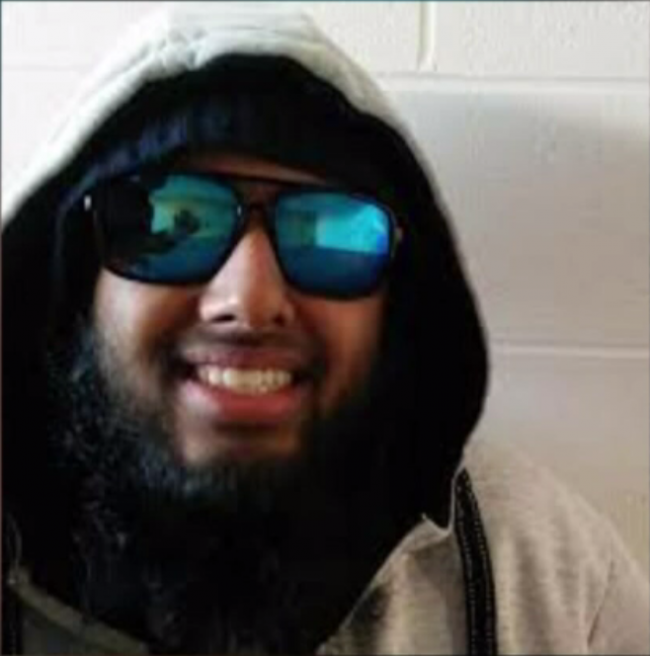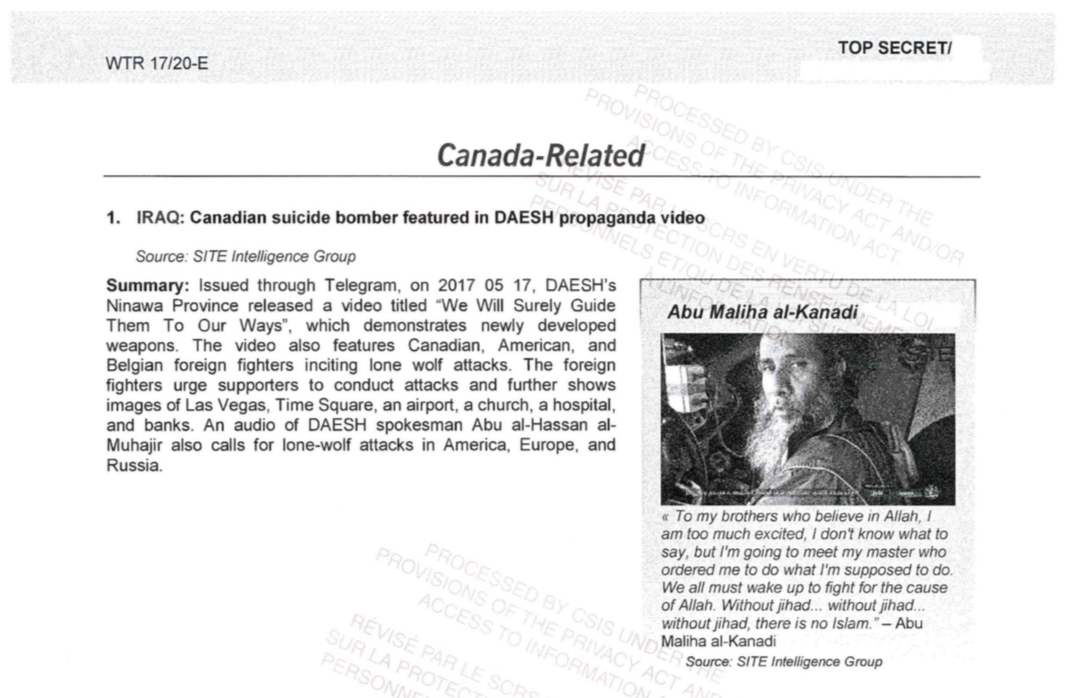A pro-ISIS group’s claim that a member of the so-called Islamic State from Toronto had been killed in Syria was the latest suggestion that Canadian foreign fighters are dying before they can return home.

In an Arabic-language social media post, the Al-Muhajireen Foundation, an online ISIS supporter’s group, identified the dead Canadian only by the alias Abu Al-Zubayr Al-Kanadi.
It said he was a former business student of Pakistani descent who held several positions in the ISIS bureaucracy due to “his proficiency in several languages and broad education.”
According to a translation by the Middle East Media Research Institute, he worked in the ISIS education and propaganda wings, and the hisbah police that enforces the terrorist group’s cruel code of conduct.
The RCMP declined to comment.
“The notice of this particular Canadian’s death was posted on a fairly well known Telegram channel run by ISIS supporters,” said a Canadian foreign fighter researcher, Prof. Amarnath Amarasingam.
“It’s not from the ISIS media branch directly but was likely written by someone who knew him — perhaps even from somewhere in the West. It can be trusted for the most part, but it should also be noted that this is not coming from ISIS central, and therefore we shouldn’t confuse this Canadian as having some high ranking role in the group. It was released by fanboys.”
While the death could not be confirmed, it would be consistent with an emerging pattern: despite concerns about foreign fighters returning to their home countries, many are instead dying in Syria and Iraq.
WATCH: Toronto man says he took part in ISIS executions

According to Amarasingam’s research, 21 of those that left Canada to take part in the conflicts in Syria and Iraq are confirmed to have been killed.
Meanwhile, 16 have returned to Canada, including those turned back in countries like Turkey and Egypt before making it to a warzone. Only two to three returnees actually served in ISIS, including one now living in the Toronto area.

Get breaking National news
Three more remain in custody abroad, waiting to return to Canada, said Amarasingam, a senior research fellow at the Institute for Strategic Dialogue.
The fates of the remaining two dozen identified by Amarasingam remain unknown but many of them are also likely dead, either as a result of coalition and regime airstrikes or combat.
Following the outbreak of the conflict in Syria, thousands of foreigners made their way to the region to join al-Qaida factions, ISIS and other armed extremist groups, including about 100 from Canada.
The decline of ISIS in the region has fueled concerns they could return, causing a security risk for Canadians. A 2014 RCMP report anticipated that a victory by Syrian President Bashar al-Assad’s forces could trigger a “flood of foreign fighters returning to their home countries, including Canada.”
Upon their return, they could radicalize others, fundraise for terrorism and plot attacks in Canada and the United States, as returnees did following the conflicts in Afghanistan and the Balkans, it said.

The Canadian government’s annual Public Report on the Terrorist Threat to Canada said there were about 60 known returnees — a figure that includes those from all regions, not just Syria and Iraq.
But Amarasingam’s research suggests that battle-hardened ISIS fighters have been the exception among Canada’s returnee population, possibly because so many have been killed in combat and airstrikes.
Ali Dirie, who travelled to Syria after he was released from the Canadian prison where he served a sentence for plotting terrorist attacks in Ontario, was killed early in the conflict.
A circle of Calgary extremists linked to Muslim convert Damian Clairmont was also wiped out, and an ISIS member from Alberta, Farah Mohamed Shirdon, was allegedly killed in a coalition airstrike in Mosul in 2015.
The deaths of Ontario extremists John Maguire and André Poulin have been publicly announced by ISIS, while battlefield photos suggest former Windsor resident Ahmad Wassim was killed by Kurdish forces.
Last May, ISIS released a video of a Canadian suicide bomber, Abu Maliha al-Kanadi. “I’m going to meet my master who ordered me to do what I’m supposed to do,” he said in a video.
The latest eulogy appeared Monday on Telegram. The MEMRI translation said Abu Al-Zubayr was born in Toronto and spoke the Pashto language at home.
“The profile recounts that from a young age he was very devout, and that he studied the Arabic language and memorized the Quran, in addition to studying hadith and other Islamic subjects. He also attended university, where he studied business and economics,” MEMRI wrote.
ISIS eulogies are known for overstating the accomplishments of dead fighters.
“Abu Zubayr also participated in military activity. Al-Muhajireen praised him for reciting the Quran loudly in the personnel carrier on his way to take part in ISIS raids. He particularly liked to recite the eighth surah of the Quran, which elaborates on military conduct and operations,” MEMRI wrote.
ISIS released an audio address by its reclusive leader on Wednesday that praised attackers in Canada, Europe and elsewhere and called on supporters to “follow in their footsteps.”














Comments
Want to discuss? Please read our Commenting Policy first.